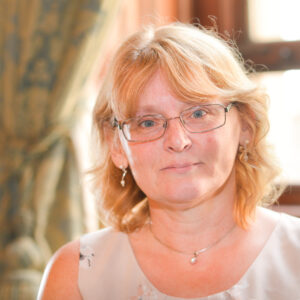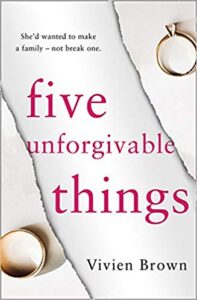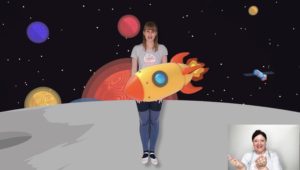Community-upon-Thames is a not-for-profit social enterprise, set up and run by Ben Mallet and Maundy Todd. Frost was incredibly impressed by the difference they are making to people’s lives in Kingston and Richmond, so we went to their offices to find out more.
Frost: Tell me about Community-upon-Thames.
Ben: Community-upon-Thames was founded in the New Year as a social enterprise. We were originally looking to do something in local media as there was a big gap in the market. The local Informer newspaper went bust last week, which is an example of the volatility of the market. Current local media is dull and boring – we wanted to do something interesting.
We thought about doing something in print, though actually everything we wanted to do, we can do far better online. So we shifted the entire idea on to a website, where we have The Secret Newspaper – alternative local news, written by local people. We have lots of exciting stories on there and we also have a skill exchange, which is like a local currency, and volunteers too.
Maundy: Ben had this brilliant idea, which is the online community. Originally, he wanted to do the paper and, again, Zac (Goldsmith, the MP for Richmond and Kingston) got involved and said: “Don’t do it on paper,” and I thought, amongst other things we were talking about, of the Skill Exchange. We were looking at the community and how people could be part of the community in many different ways. I just thought [a website] was a fabulous thing to help older people, people who might be trapped at home, people who weren’t working – who could be made to feel useful. It also just gave this wonderful flexibility, for people who might be thinking of starting mumsnet, but don’t know how to go about it. You can do a skill exchange and see if it works. You can offer things and see if people come back.
The newspaper, I really wasn’t sure. We pay for a local paper but I think they are dead flat, really boring and all have the same stuff in. So, when Ben said online, I was really excited because an online newspaper is all about the community. Because we are website-based, we can do anything at all to help the community. If people want to write about something then they can write about it. Some have particular hobbies and if they want to get it to a wider group of people,they can send it to us and we can upload it – unless it is something, legally, we wouldn’t want. If they have pictures, even better.
Life is a bit tough. Cameron keeps going on about the breakdown of society – we do feel that what we’re doing is about bringing the community together, creating a society where people do care. This is an affluent area, but there is still those little pockets where there is no community. People feel very left out and very excluded. I include older people in this. We treat old people dreadfully in this country. Anything we can do to try and connect.
My other big passion is helping people with disabilities. My daughter is so excluded from society because she is disabled. Our whole life is about inclusion, about our daughter having the same opportunity of other children. Helping her raise her expectations, and other people’s expectations about what a disabled person’s role is in life. That includes education and work.
We are coming up to two million unemployed people now. A whole raft of young people who have been excluded from society because they did what they were supposed to. They went to university and then fell off the cliff.
I have two daughters who are graduates. So I was very interested in what Ben was doing, supporting local shops, local charities, and reporting local news. Helping people feel like they are part of society and get paid work. Unless you are in paid work, you don’t feel like you belong, you don’t feel part of it. That is how we got to the employment bit.
It’s what we call our virtuous circle. Helping out small shops means they want to help us. All of the local businesses want to help, because we want to help local people into work.
We got these offices because we had a generous landlord and why did he help us? Because he listened to us about trying to help people back into work. He said he had to fire lots of people when the recession hit, and they lose confidence very quickly. If you are in your 50s or 60s, you have virtually no chance of being employed.
We also try to help people with a learning disability. We decided that if you can help people with learning disabilities, you can help anyone because they are the most excluded group in the country. So when we were doing our qualities policy, we would not tolerate any type of discrimination from anybody about anything. We are completely inclusive.
Businesses don’t get all we are trying to do, but they feel this energy! (Laughs).
Ben, because he’s young and he’s good with technology, he made this media stuff happen, and because he is very committed and very genuine, he put ads on for interns and we got all of these wonderful graduates – some with firsts, completely despondent about trying to get jobs. They start working for us and we promise that we have a flat management structure and it’s flexible. And we say: “We will help you find a job. If you want any input you can come to any meeting or anything.”
Ben: To put this into context, the meeting that is happening next door is what we were talking about when we were talking about the virtuous circle with businesses. Richard runs a business in New Malden. We are trying to support him through that and Michael, who is one of our interns, came along and wanted to get involved. Richard wants to sort out his system and now they are having a conversation about paid work. That is the metaphor for how we work. We are supporting the businesses and supporting local people and the website is the glue that binds them together. It’s a two-way street.
Maundy: We were talking and Richard said: “It sounds so exciting, I really want to help you and I’m in IT. I would be happy to come and mentor.” So we said okay and he came into the office and we ended up talking about a job that he needs done and Michael popped up at the end and said: “I could do that.”
The thing is, Richard doesn’t want employees, and we don’t want employees because the employment legislation in this country is really restricting for medium-sized businesses. So we told Richard we were sure we could find self-employed people and they would just invoice you for the hours they work. That is a reason why the job market is so bad at the moment, people don’t want to take the risk of having an employee and all of the restrictions that come with it. But people want to work and they want to get paid. They want to be useful in society.
So far, it’s been great fun. It’s been a roller-coaster but we are stabilising. We did a coffee Q & A with Zac Goldsmith a couple of weeks ago with local businesses asking him questions. It was great. Over 25 businesses came, Zac said social enterprise is the way forward and even the guy next door said he really wanted to help.
It is rotten to be a young person. We are going to have a pop-up job cafe for young people. Everything is about contacts. Our entire business plan is about contacts. Nick Clegg is trying to stop that, but it’s not about ‘who your daddy knows’ contacts. It’s about making connections. We put people in contact in an informal way. We have not stumbled at all yet.
Ben: We are still trying to find leads for some people.
Maundy: The National Childbirth society is a member of our organisation. We have membership packages for sole traders, companies and not-for-profit. They lost their venue, so they have their home birth class in our office. We can write stuff about them on our website and we link. We sponsor the Twickenham Live Regatta. They had stand-up paddle boarding. So we had Ben and Charlie paddle boarding.
Ben: I fell in. It’s a lot harder than it looks. I finished the race dry, then I fell in.
Maundy: We have the picture on the website. They were on Facebook quite quickly. And we can do advertising and Youtube videos.
Frost: How did you get it off the ground?
Ben: Hard work. It was just getting a website and talking to people. The real life that was injected into it was the employment side. That is when Maundy got involved. Everyone we spoke to said it was something they felt strongly about.
Maundy: The website took a while, but when we got the website, and the website functioning, it went quite quickly. We are a last resort. We have a cafe office. We want everyone to feel welcome.
Frost: Will you branch to other areas?
Ben: We are about community, but we don’t mind if you are from another area. We won’t ban you from the website. We want to expand, but in the local area. There are a quarter of a million people in Kingston and Richmond, so it would be great to touch even 10% of that. People in Kingston spend the most amount of time online than in any other borough.
Frost: What about the London Riots?
Ben: The area we cover was not directly affected, but they came pretty close. I was abroad at the time but I remember talking to Maundy about it.
Maundy: We had some alerts. We shut the office. We took all the interns home and locked up. We were contacted by the police and we are going to be working with the police on youth engagement. We were talking about how hard it is for young people, and we don’t just mean graduates. Graduates are easy for us because they can do internships. So we talked to the police and we will be getting some inspirational speakers.
Ben: In terms of the aftermath, when you see the news, what surprised a lot of commentators was the fact that all these people came out with their brooms and started sweeping. There was a strong sense of community and we didn’t find that surprising at all. There is a very strong sense of community, especially in London.
Maundy: You never know where your connections will take you. We work with the Big Issue as well, but we were trying to do something that was too ambitious. We were trying to help people find work. We thought because we do a job cafe, maybe we could do a lunch cafe for the Big Issue vendors. Instead, we are trying to help them identify people who might want to be vendors.
Ben: We are a supporter and a friend.
http://www.communityuponthames.co.uk/
 Each of the now adult offspring is introduced in a way that reveals something important about their lives, and the ‘introduction’ scene I most enjoyed writing is the one featuring Natalie, the first of the siblings to appear on the page.
Each of the now adult offspring is introduced in a way that reveals something important about their lives, and the ‘introduction’ scene I most enjoyed writing is the one featuring Natalie, the first of the siblings to appear on the page. But it can be a bit daunting when the assistant hands out glasses of fizz and starts measuring and fussing. Ivory or white? Lace or satin? Shape? Style? How long a train? For Natalie, not only is she making these choices alone but the choices themselves are a lot more restricted. There are hints that something is different here as Natalie enters and a look of surprise flits across the shop assistant’s face before being ‘swallowed up in what was clearly a well-practised customer-friendly smile.’ It’s a look Natalie is used to, one ‘that told her she was not quite who, or what, had been expected to come rolling in.’
But it can be a bit daunting when the assistant hands out glasses of fizz and starts measuring and fussing. Ivory or white? Lace or satin? Shape? Style? How long a train? For Natalie, not only is she making these choices alone but the choices themselves are a lot more restricted. There are hints that something is different here as Natalie enters and a look of surprise flits across the shop assistant’s face before being ‘swallowed up in what was clearly a well-practised customer-friendly smile.’ It’s a look Natalie is used to, one ‘that told her she was not quite who, or what, had been expected to come rolling in.’ This is a very short scene but it gives the reader a peep into Natalie’s mindset as she ponders her sisters’ absence, realises that the last thing she really wants on her big day is to be the centre of attention, and that the dream dress in the window is never going to work for her.
This is a very short scene but it gives the reader a peep into Natalie’s mindset as she ponders her sisters’ absence, realises that the last thing she really wants on her big day is to be the centre of attention, and that the dream dress in the window is never going to work for her.








